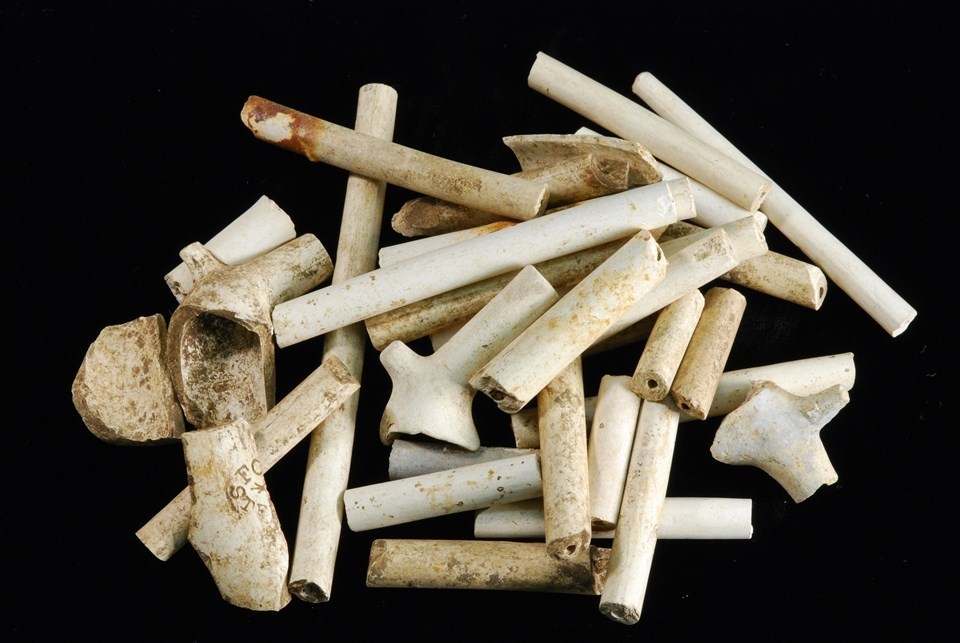[ad_1]
By SELENE SAN FELICE, The Capital
ANNAPOLIS, Md. (AP) — A tobacco pipe found along Generals Highway could connect people with African ancestors who were enslaved in Anne Arundel.
Archaeologists from the Maryland Department of Transportation State Highway Administration sent four clay tobacco pipe stems they found along with thousands of artifacts in the slave quarter at Belvoir to be DNA tested in a lab at the University of Illinois Urbana-Champaign, a release from the department said.

Doctors from the lab identified a woman’s ancient DNA on one of the pipe stems, but say it was too degraded to link to living descendants. But a doctor at the University of Copenhagen found the woman to be most closely related to Mende people living in present-day Sierra Leone in West Africa.
This is the first time scientists have taken human DNA from a 200-year-old pipe stem and connected it with someone’s ancestry, Dr. Hannes Schroeder of the University of Copenhagen said.
“We usually study ancient human skeletal remains, so having the opportunity to recover DNA from tobacco pipes a few hundred years old was a unique challenge,” said Dr. Ripan Malhi, head of an ancient DNA (aDNA) laboratory at the University of Illinois Urbana-Champaign.
MDOT SHA chief archaeologist Dr. Julie Schablitsky called the finding a breakthrough for archaeologists and the communities they study.
“When Africans stepped on those slave ships, they lost not only their freedom but their identity,” Schablitsky said in the release. “This is one way archaeologists can help descendants reclaim their heritage.”
Their findings were published in the Journal of Archaeological Science.
Pamela Brogden, of Hanover, has traced her ancestry back to Belvoir slaves. While she isn’t sure if she’s linked to the DNA found on the pipe, she is excited about the possibility. Brogden said she served in Sierra Leone as a U.S. diplomat for two years and left in 2014, coincidentally the same year the Belvoir site was discovered.
“I know how hard the people of Sierra Leone are, how they’ve gone through almost a civil war to come back still thriving,” Brogden told The Capital.
Former county archaeologist Al Luckenbach called the tobacco pipe DNA finding impressive. This is just the beginning of the potential for DNA discovery in our area, he said.
“It opens a whole new way to get DNA from archaeological sites that we couldn’t have dreamed of when I was active,” he said. “I’ve never seen it done with tobacco pipes and we certainly find plenty of those in colonial sites in Maryland. A lot of slaves didn’t have names recorded and now we might know that this family descended from that plantation, that kind of thing.”
___
Information from: The Capital, http://www.capitalgazette.com/
[ad_2]
Source link
